Indigenous Traditional Ecological Cultural Knowledge Center 2022
A designbuild planing project at the Center for Public Interest Design at Portland State University as distinguished professor; Chair: Sergio Palleroni
The Portland State University (PSU) Oak Savanna project is focused not just on reclaiming an Oak Savanna within the campus’s urban context, but also on designing and creating a new Indigenous Traditional Ecological Cultural Knowledge (ITECK) Center for the many indigenous communities here in Portland.
The ITECK Center on the Campus of the Portland State University, in Portland is a designbuild project that started already a year ago with preliminary studies. It is located in the center of the PSU campus and includes an existing building that could be restored. The program and architectural design were developed during the spring 2022 semester. The project will be implemented over the next two years by a variety of different PSU student groups.
In conversations with Judy Bluehorse Skelton, an Assistant Professor of Indigenous Nations Studies at PSU, and our main point of contact regarding the project, the program was developed. A kitchen, two classrooms, storage and the decolonized library – not so much a library in the traditional sense, but as Judy patiently explained, a repository of knowledge and stories, that may hold handmade, culturally specific material, act as a space for drying plant samples collected from the Oak Savanna, or hold electronic collections of oral traditions, “a place to share or gain knowledge” – are the main parts of the spatial program. To fit all of the required spaces into a roughly 2000 square foot building, it will likely take some creative planning and combination of space.
A set of design principles of a vision of responsible, culturally relevant land use was developed and discussed with Judy Bluehorse Skelton and Athena Shepard, the client representatives.
Each of the following principles are unto themselves complete, but also exist as part of a larger interdependent network.
Sacredness of Land
Sacredness of land is recognized through the practice of reclamation and restoration of ancestral ecosystems. Acknowledgement of the land’s significance is carried into the future through transmission of knowledge and by the actions of the present inhabitants. The land will be used responsibly and in accordance with the other six principles.
Cultivation of Healthy Relationships
The building, site, plants, animals, insects, and humans are inter-relational beings, each dependent upon the wellbeing and health of all others. Rather than being a static object upon the land, the building acts as a participant in a larger ecosystem.
Reciprocity
The building will promote reciprocity by giving back to the land what it receives.
Ex. Water harvesting is returned to the land.
More is not taken than is needed.
Ex. Leaves from trees are not raked, but recognize that the carbon and plant matter are critical to the cyclical return of nutrients to the tree and soil.
Slow Change is Long Change
Working with and learning from nature takes time. Planning for the 7th generation also takes time and wisdom developed from interaction with nature in a particular place. It is important that the structure and the building program address this through a careful and patient planning process which engages with elders for important knowledge.
Building or deciding too much or too soon could be worse than doing less.
Living, Planning, Designing, and Managing for the 7th Generation
Embarking on a project requires a great responsibility to the inheritors of that structure and place. The structure must be built with diligence and respect to all parts and potential changes to its structure and organization.
The building serves as an example and protector to the land around it, where responsible management and living may be taught to future generations.
Respect for the Role of Indigenous Ways of Knowing
These methods and understandings are not always presented in the ways that westerners expect (ie documentation, statistics, etc). There are other ways for transferring knowledge and making informed decisions, and opening to indigenous ways of knowing will be essential in this project.
Respecting indigenous ways of knowing involves honoring cultural practices and a mindset of holistic sustainability.
Sharing of Knowledge
The sharing of knowledge is essential to the growth of indigenous communities. Learning how to care for the site and structure through knowledge sharing empowers the community to make independent decisions about its maintenance and changes.
In addition, as a critical piece in the continuing life of indigenous knowledge, the structure must act to facilitate the different activities through which traditional knowledge is shared and practiced.
Project Lead: Sergio Palleroni
Distinguished visiting professor: Ursula Hartig
Collaborating Partners: Judy Bluehorse Skelton, Athena Shepard (client representatives), Travis Bell, Todd Ferry, Sean Silverstein, Santiago Gil, Camilla (PSU collaborators)
Students: Sam Barber, Lauren Espinoza, Vicky Fuentes-Sotelo, Eric Giovannetti, Ethan Goldblatt, Kaleb Huerta, Ardon Lee, Alondra Maldonado, Niusha Manavi Namaghi, Kristy Myatt
Picture Credits: CPID, PSU
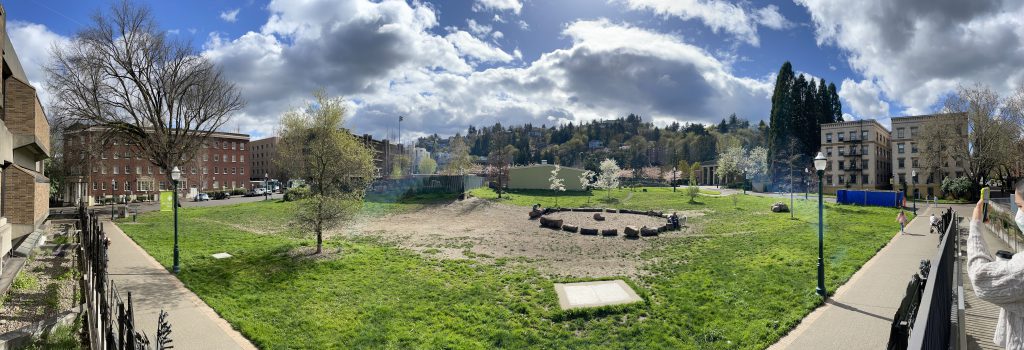
The Oak Savanna at Portland State University.
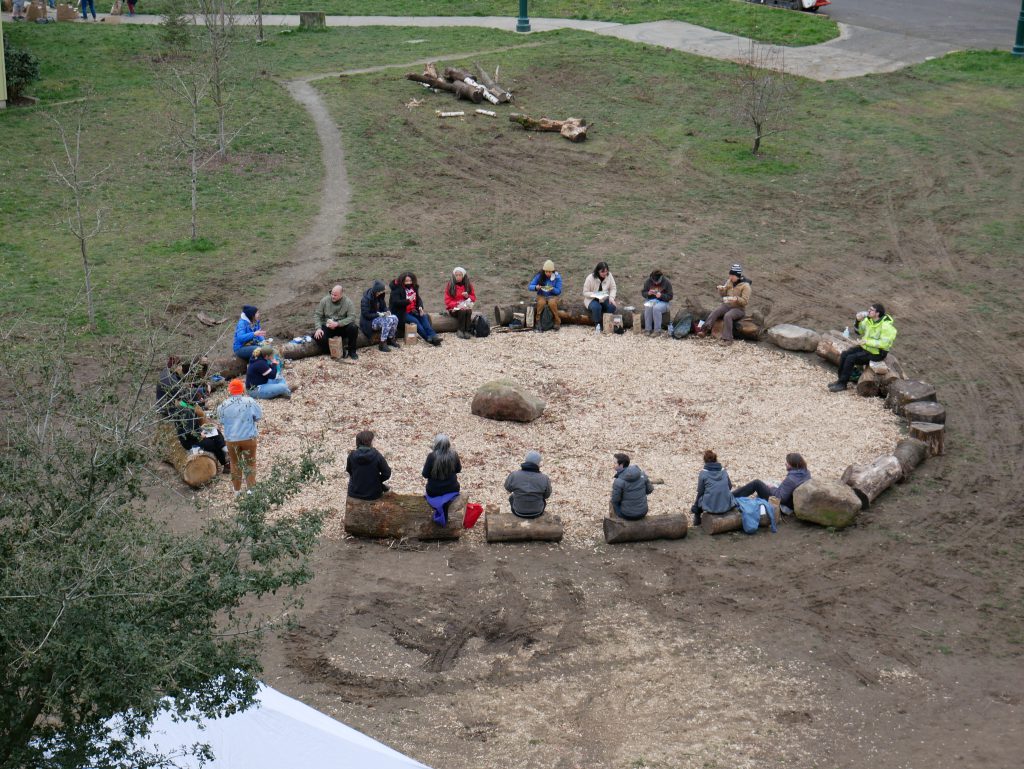 The Circle, occupying the space
The Circle, occupying the space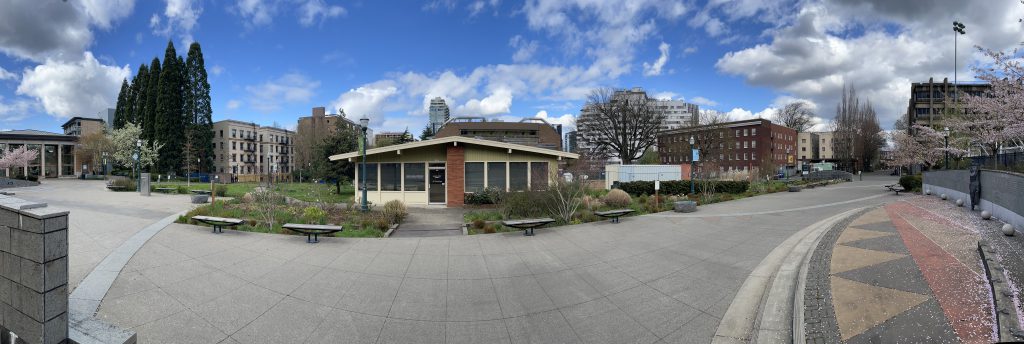 The existing building
The existing building

The site at the edge of the city 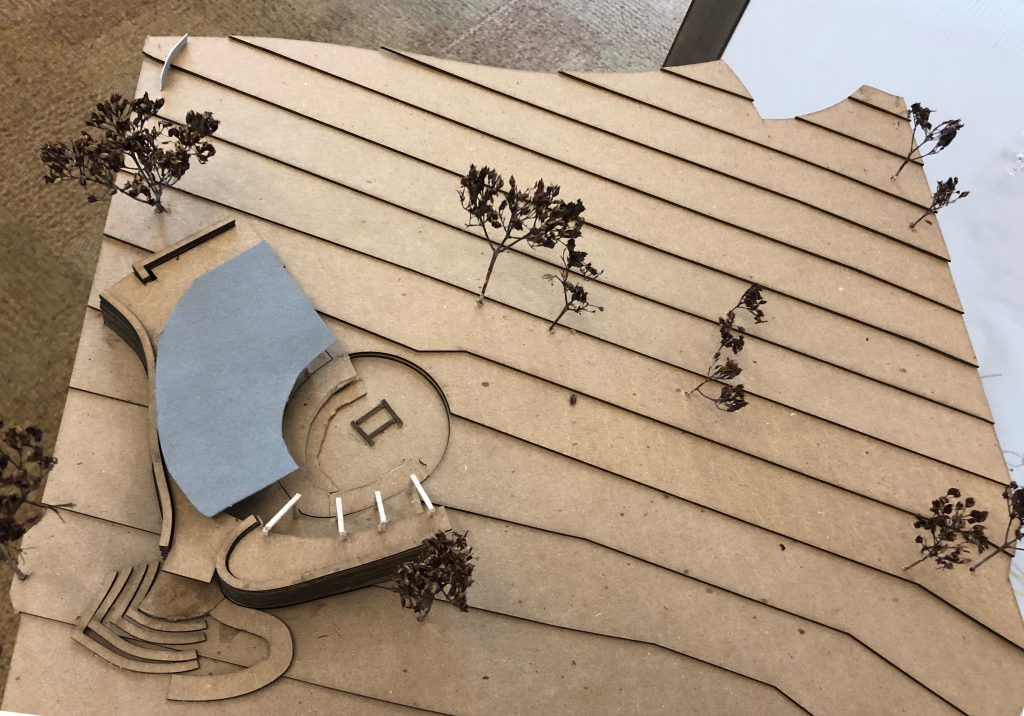
Embracing and Protecting: Sam Barber
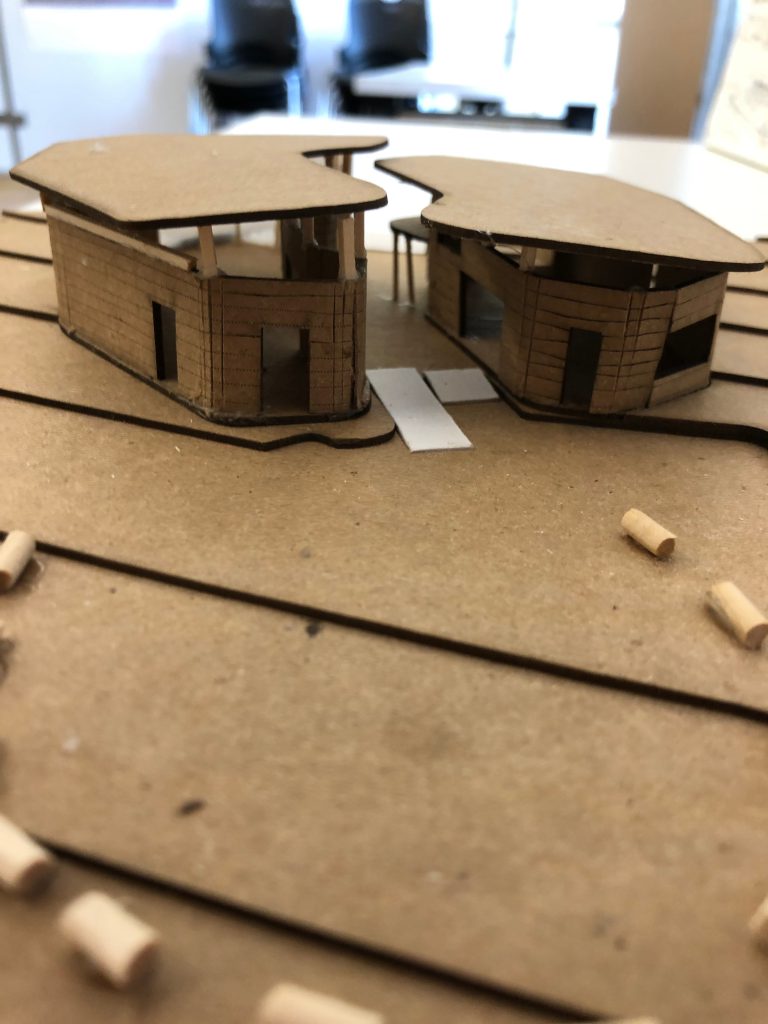
Rocks in the River: Kaleb Huerta
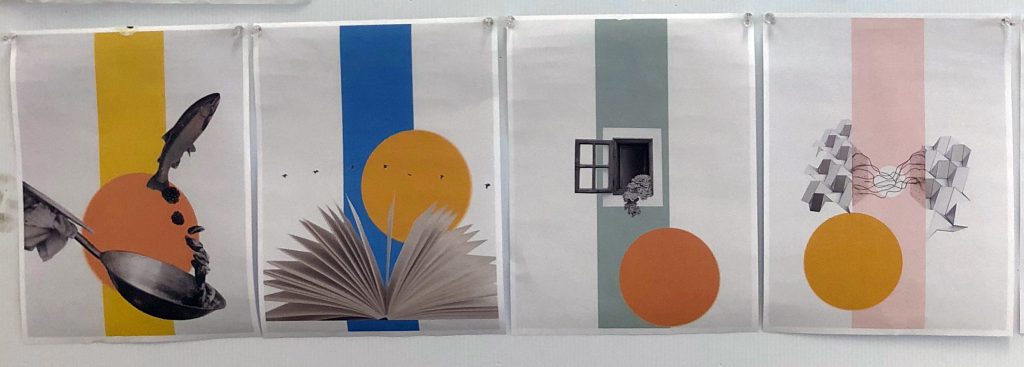
Use-analogies: Lauren Espinoza

Reshaping the Exiting; Ethan Goldblatt
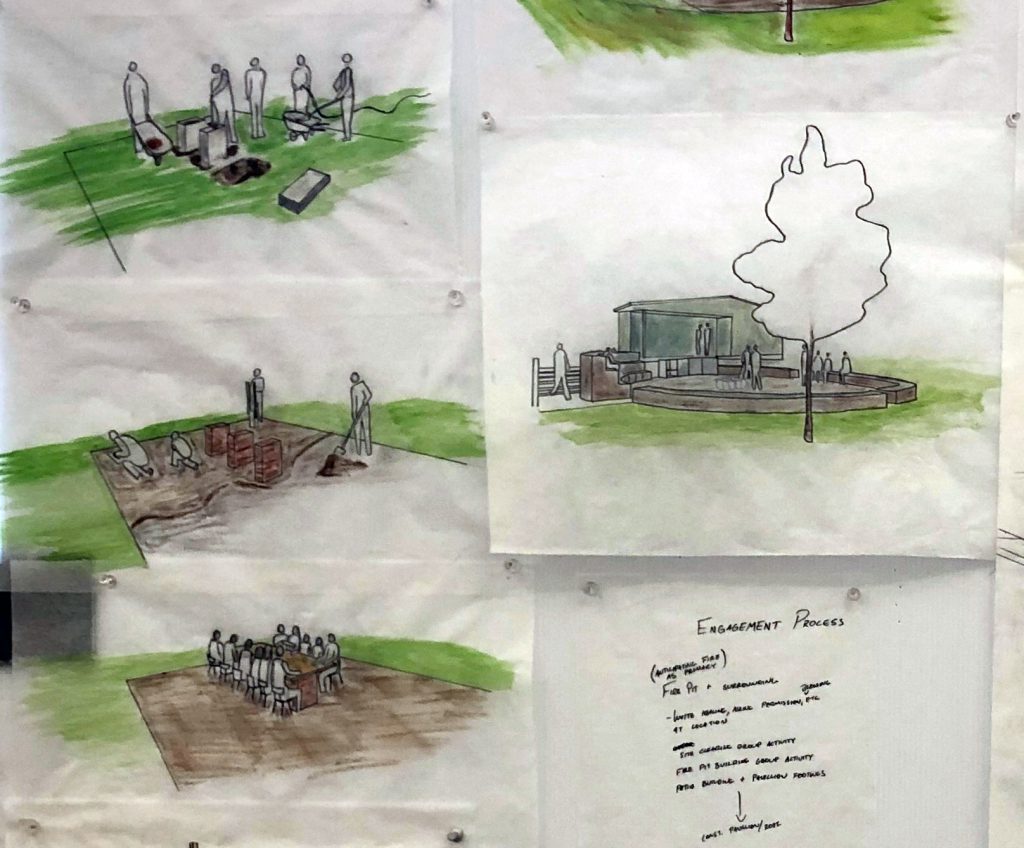 Process as Guideline: Eric Giovanetti,
Process as Guideline: Eric Giovanetti, 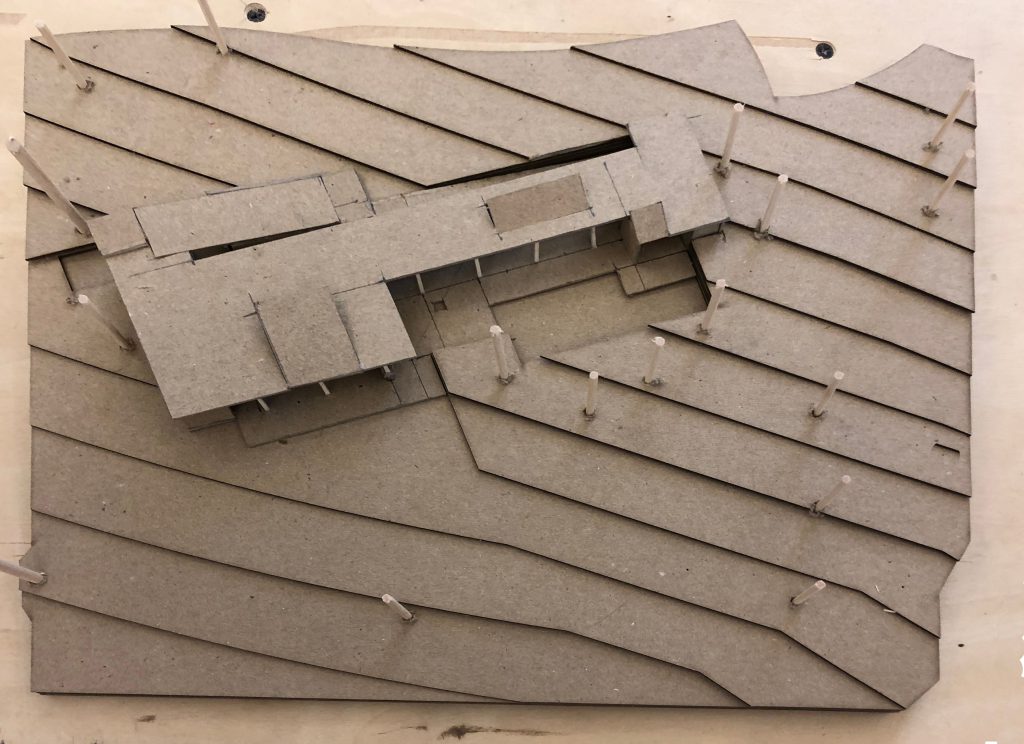 Sunken Library: Ardon Lee
Sunken Library: Ardon Lee 
Sunken Library: Ardon Lee
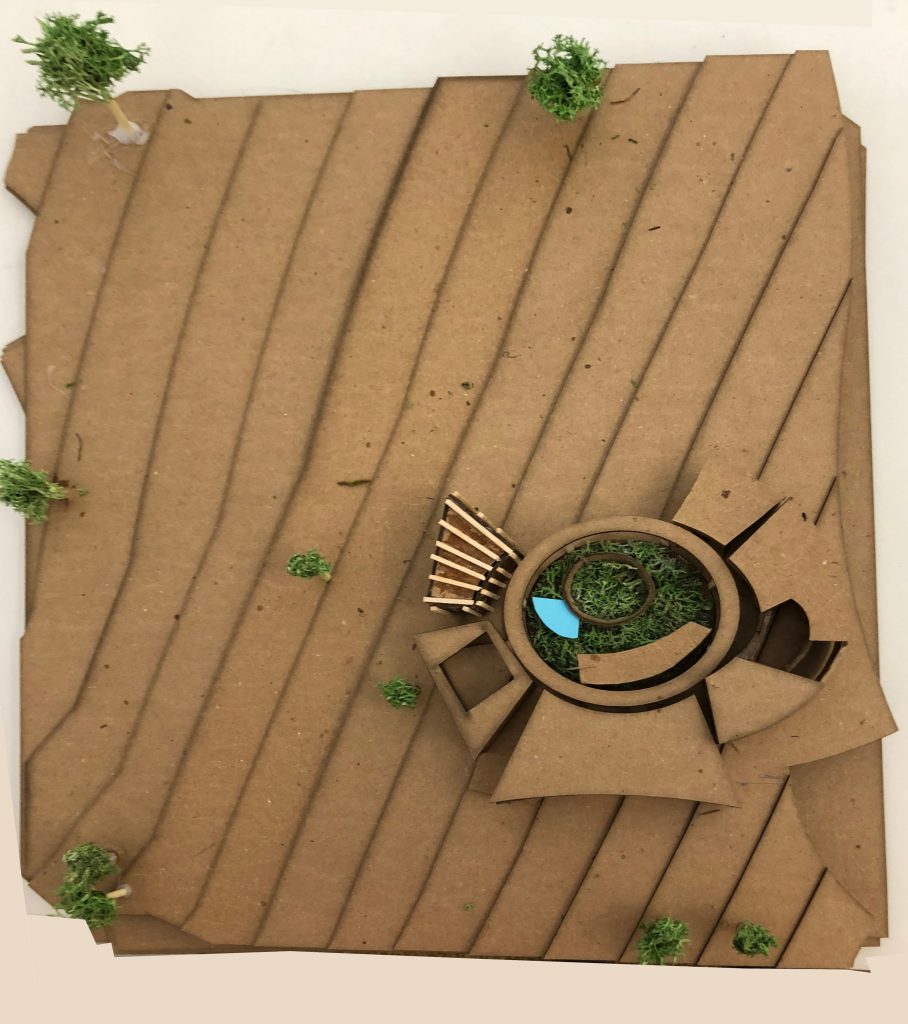
A Circular Encounter-space: Niusha Manavi Namaghi
